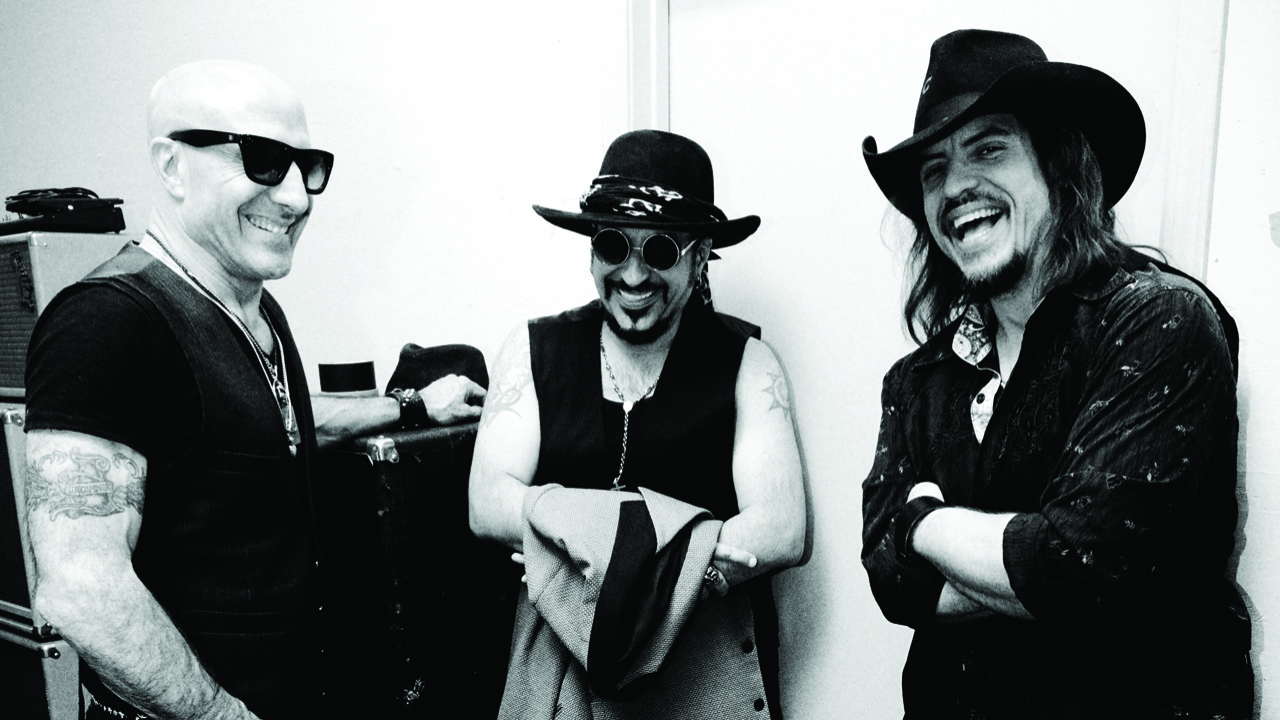WHEN AN ALBUM boasts a stellar list of guests, as the debut album from Dr Z Presents Supersonic Blues Machine does, it’s often a smokescreen designed to disguise the fact that the core band is nothing special. So you’d be forgiven for assuming that West Of Flushing, South Of Frisco is just a run-of-the-mill blues collection.
Well, you’d be wrong. With or without the famous names, this power trio – bassist Fabrizio Grossi, singer/guitarist Lance Lopez and drummer Kenny Aronoff, from Italy, Texas and Indiana respectively – have made a contender for blues album of 2016, even though the year has barely started. The energy of the 13 songs rarely lets up, making for an adrenalised ride. The album has a definite rock feel, thanks to layers of duelling guitars, but it’s a blues record to the core, with railroad harp, gravelly vocals from Lopez and lyrics covering life’s various tribulations.
Tempting as it is to jump straight to the special guest performances, such as Billy Gibbons’ amazing, liquid lead guitar spot on Running Whiskey, check the central trio at their unaided finest. Let It Be (not that Let It Be) is a relentless, stop-start stomp, while Miracle Man delivers a serious dose of energy to kick off the album. Ain’t No Love (In The Heart Of The City), originally written by Bobby ‘Blue’ Bland, is a classic lament, and Watchagonnado, brings a welcome bunch of funked-up Stax horns to the table.
No wonder the blues greats queued up to join the fun. Gov’t Mule’s Warren Haynes adds spice to Remedy, whose infectious chorus will have you jamming fingers in your ears for days after hearing it. Chris Duarte, the maverick Texan songwriter, supplies an impassioned performance on That’s My Way, a song that grooves its way in and out of soul territory. Meanwhile, Eric Gales, a Tennessee guitarist who previously played with Grossi when the pair worked alongside funk godfather George Clinton, lends Hendrix-style licks to Nightmares And Dreams.
Perhaps Can’t Take It No More, featuring the mighty Walter Trout, is the most memorable cut here. Unlike the guitar-drenched songs on the rest of the record, here the instrumentation is largely stripped back. Winding down the album, Let’s Call It A Day is a whimsical piano ballad on which jazz-rocker Robben Ford shines. There’s a world-weary humour here which complements the rest of this exceptionally well-crafted suite of songs. Modern blues doesn’t get much better than this.

